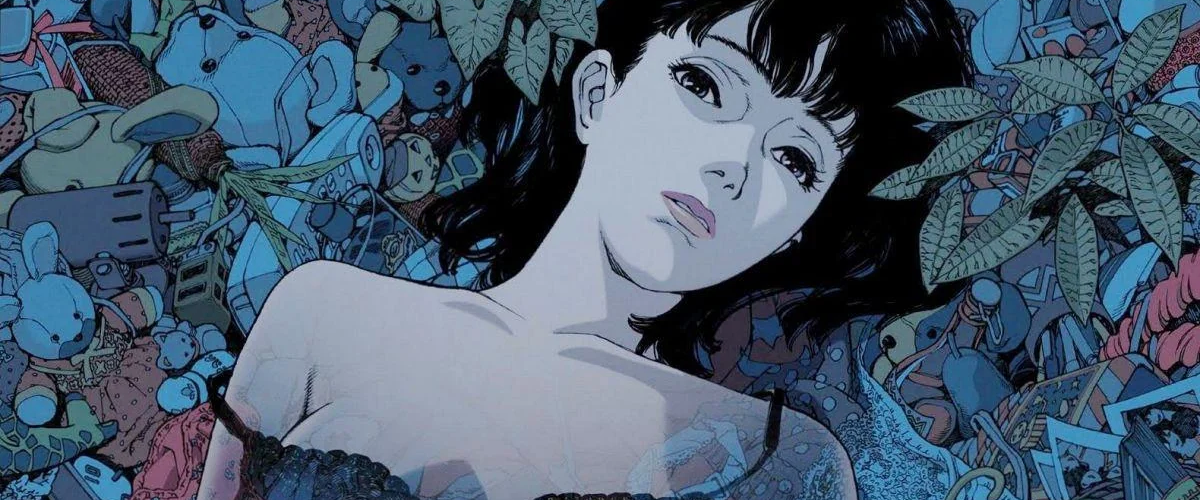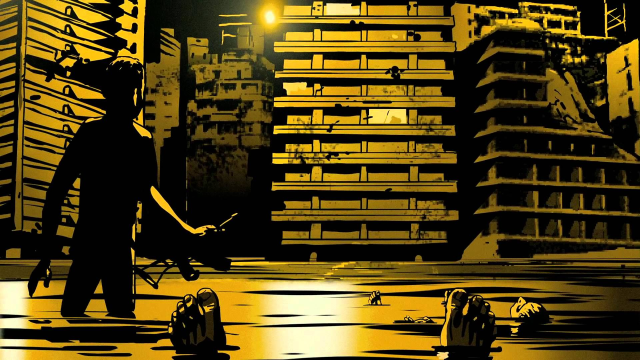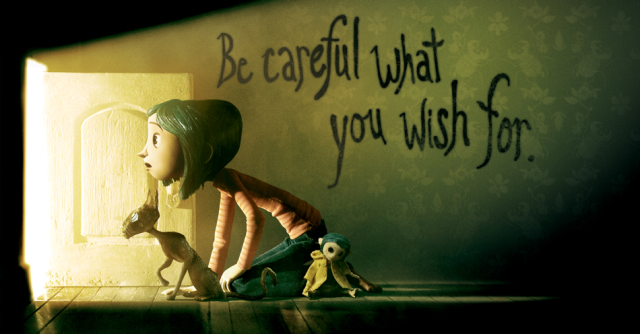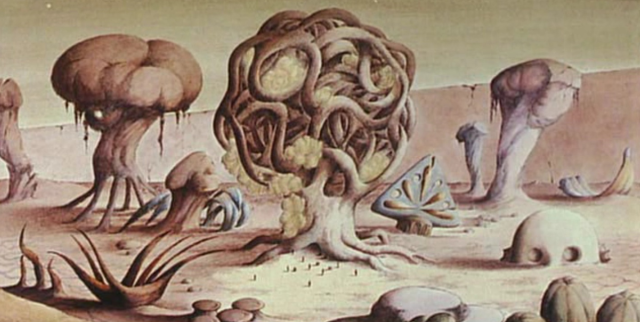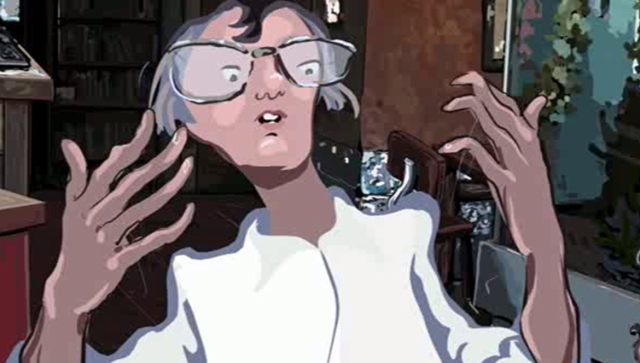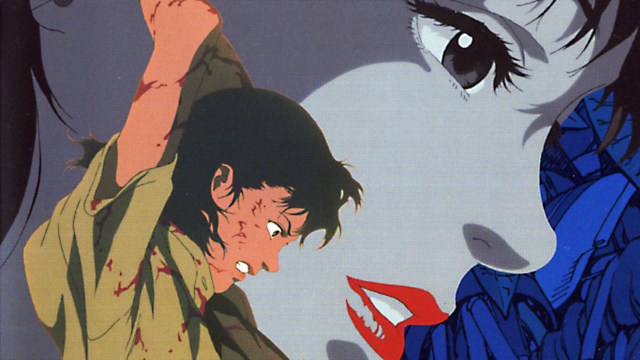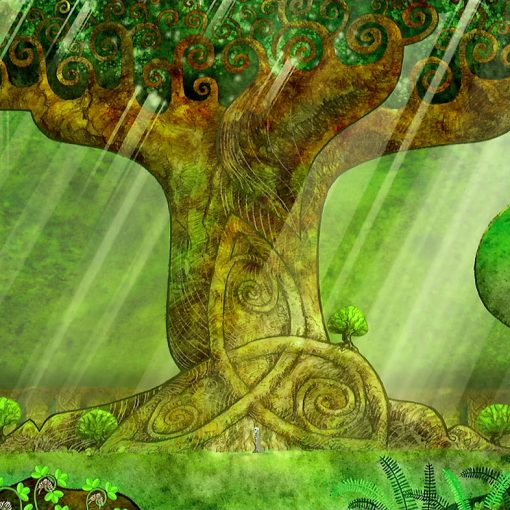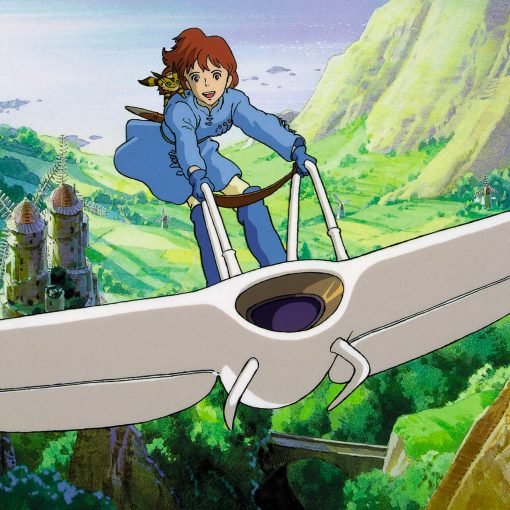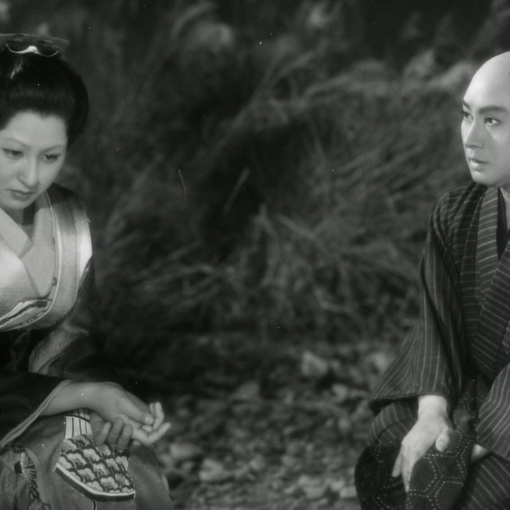Serious Animation
Ask a random person what he or she thinks is an animation film and most of them will reply with answers such as:
- Films like Mickey Mouse, The Land Before Time or My Little Pony – films for the little ones (sorry bronies!)
- Films like Toy Story, Finding Nemo or Ice Age – Kids films that are also enjoyable for adults
- Anime, big eyes and other body parts, weird monsters, kittens, robots, sexy school uniforms and other odd – to us – Japanese customs
Generally speaking they are mostly correct. What most of them do not realise though is that there is a world of adult animation films out there. Granted there aren’t very many of them, but they exist and are often well worth seeking out. Many of them are not very appealing to the big masses because they focus on a particular subject that usually doesn’t speak to the masses. Add to that the fact that a lot of adults see animated content as something for the children to enjoy. They feel too old for a cartoon. Oh how wrong they are.
Animation offers certain features that you could never hope to realise in a normal film. Or at least not without a multi-million CGI budget. By definition an animated film is clearly not real people. In some cases it creates an emotional distance that can be used. When an animated character dies in a horrible way, for some reason – if you’re not bambi’s mother – it is just not as bad. It also opens up possibilities of creating landscapes or entire worlds that are very different from the one we live in. Think Avatar. How would Inception feel like if it were animated? (tip: Paprika gets close to creating a surreal dream world)
This post covers five (semi-) serious animation films. To show everyone that there is more than the umpteenth wacky animal comedy adventure monster princess film. And that a lot of these films, while great for adults, are not always suitable for the little ones:
- Animation as Documentary: Waltz With Bashir (2008)
- Animation as Dark Tale: Coraline (2009)
- Animation as Psychedelic Trip: Fantastic Planet (1973)
- Animation as Dream World: Waking Life (2001)
- Animation as Psychological Thriller: Perfect Blue (1997)
It is worth noting that Coraline is perfect for little children, but the dark theme makes it a great one to watch for adults as well.
Other examples include:
- Animation as (Romantic) Drama: 5 Centimetres Per Second (2007) en Millennium Actress (2001) en L’illusioniste (2010)
- Animation as Biography: Persepolis (2007) en The Wind Rises (2013)
- Animation as War Drama: Grave of the Fireflies (1988) en When the Wind Blows (1986)
- Animation as Sci-Fi: The Girl Who Leapt Through Time (2006) en Technotise: Edit & I (2009)
Some of these are OK to watch for children, but I wouldn’t recommend any of them aside from The Girl Who Leapt Through Time and maybe L’illusioniste.
Waltz with Bashir
When I first heard of this one I couldn’t imagine an animated documentary. I mean, aren’t we supposed to see actual footage with a low pitch, manly voice providing all sorts of interesting tidbits of information? But what do you do when there is no video of the things you want to tell? Watching people in chairs tell their stories gets rather boring after a while,. So there must be another way to do this, I imagine the director must have thought. Let’s animate the whole thing!
The Israeli director, Ari Folman, wants to find out which role he played as soldier during the Israeli invasion of Lebanon in 1982. He does this by talking to old army buddies and friends. But instead of showing a lot of animated people talking to one another, we see images of the things these people talk about. The people tell their stories, and the stories are enhanced by these often very graphical or poetic representations of what happened in their eyes. The animations actually make they story more intense. Ari’s moments of self reflection and his dreams sometimes give you the impression of actually being in his head.
Finally the sounds play an important role. While the people are talking about a falling bomb, you actually see it fall and then hear it explode. It adds to the intensity and it gives you a good impression of how it could have been were you actually there. The film ends with one short shot of actual footage, because sometimes you just have to see things the way they really are.
Coraline
Coraline and her parents move into an apartment in a remote country mansion. She comes to live with a bunch of odd characters and a cat. Coraline’s parents are so busy working that they have no time left to spend with her, so she is on her own. She’s bored to death when she suddenly finds a tiny door in one of the mansion’s rooms. It leads to the other side. The other side is sort of a parallel world in which her parents do give her all the attention she needs. However it comes at a hefty price.
Coraline is not like most animation films. It has been entirely recorded using puppets, stop motion and regular animation techniques. It gives its viewers a unique world with a very sinister atmosphere. It is that and the haunting, but beautiful, music that really bring this film world to life.
Fantastic Planet
Now here’s a film that shows us what can be achieved only through animation. The world René Laloux gives his audience feels so surreal in literally every aspect imaginable. Whenever we think of how life on another planet might be, we likely all see humanoid beings. They are likely grey or green with big eyes and.. well you know. We basically see Close Encounters, Star Trek or Starship Troopers. Humanoids or horribly ugly slimy creatures. But not this time.
This world is extremely alienating. The plants, animals, sounds and physics are in no way earth-like. Yet for some reason there are giant blue humanoid-ish beings called Draags, and tiny Oms that basically look like humans. The Draags are the dominant species and keep domesticated Oms as pets. They exterminate the savage ones. While the Draags only seem occupied with their spiritual growth, the film centers around Ter, an Om. He manages to obtain a learning device with which he flees into the wilderness. He finds a colony of savage Oms. With them he tries to get the knowledge needed to liberate themselves from the Draags.
Laloux’ second film, Time Masters (1982) repeats this in terms of animation. Even though the style is completely different, there again are countless weird settings and creatures. It does make you wonder how life elsewhere would really look like. Are we even capable of imagining how it might be?
Waking Life
Waking Life spans a person’s sleep cycle. At first the sleeper does not realise he is dreaming. He meets a lot of people with whom he contemplates life, existence and other philosophical yada yada. But that is what one can expect from director Richard Linklater (‘Before’ series). It’s easy to listen to, since there isn’t too much plot going on. It gives you an opportunity to check out the animations.
That isn’t as easy as it sounds. Just as in a real dream, everything is a bit of a blur. Things suddenly change shape, size or colour. Texts are usually unreadable and sometimes you suddenly switch context to a different location for no reason. And sometimes stuff comes floating by or people float away. It just doesn’t make much sense. Usually you only realise this once you wake up. This is different in a so called lucid dream. A dream in which you realise that you are dreaming. This is one of the topics covered.
So when every part of the screen is in constant movement it becomes difficult to keep up with it all. I actually felt really worn out after watching it. A person’s face constantly changes. One second he has big wide lips, then they shrink. The next moment he suddenly grew a mustache or a beard, or both. Hair colour and length changes constantly, when he isn’t bald. Arms become wobbly or blend into the background and then a random item comes floating by. It’s difficult to keep up with everything, but it’s true eye candy.
Perfect Blue
Finally Perfect Blue will show that – in this case – anime can be used to produce a serious thriller. This film was released in 1997 and shows a lot of resemblances with the much better known Mulholland Dr. (2001). It would not surprise me if David Lynch used this film for some inspiration. A lot more obvious in resemblance is Black Swan (2010). Many scenes are similar and plot-wise there are a lot of similarities too. It says something about the quality of Perfect Blue, that films such as the ones mentioned – probably – took some inspiration from it.
The film is about the attractive pop idol Mima who is being persuaded to leave her band to start an acting career. She doesn’t land the big lead role immediately, so she ends up playing questionable roles of which one where she plays a rape victim. She instantly loses her innocent pop star image. Many of her old fans are angry because of this. While Mima struggles with her ambitions – should she have left her band? – she slowly loses track of reality. The line between the real world and the world in her head gets blurrier by the day. Can she get a hold of herself in time, or will things get completely out of hand?
Overview
On the BVS Film Meter (patent pending) the films get the following scores:
| Waltz with Bashir: |  (8.2 / 10) (8.2 / 10) |
| Coraline: |  (9.0 / 10) (9.0 / 10) |
| Fantastic Planet: |  (7.9 / 10) (7.9 / 10) |
| Waking Life: |  (7.6 / 10) (7.6 / 10) |
| Perfect Blue: |  (8.6 / 10) (8.6 / 10) |
| 5 Centimetres Per Second: |  (8.4 / 10) (8.4 / 10) |
| Millennium Actress: |  (9.4 / 10) (9.4 / 10) |
| L'illusioniste: |  (7.1 / 10) (7.1 / 10) |
| Persepolis: |  (8.0 / 10) (8.0 / 10) |
| Grave of the Fireflies: |  (8.1 / 10) (8.1 / 10) |
| When the Wind Blows: |  (7.5 / 10) (7.5 / 10) |
| The Girl Who Leapt Through Time: |  (8.1 / 10) (8.1 / 10) |
| Technotise: Edit & I: |  (7.3 / 10) (7.3 / 10) |
